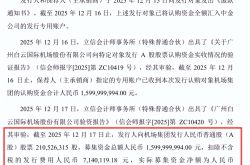What does Xiaomi, which is "compatible" with Apple, really want to achieve?
![]() 12/03 2024
12/03 2024
![]() 549
549
Xiaomi Group disclosed in its third-quarter financial report released on November 18, 2024, that its revenue for the third quarter reached 92.51 billion yuan, a year-on-year increase of 30.5%, exceeding market expectations.
Looking to the future, Xiaomi has chosen to take a big step towards "compatibility" with Apple. Will this be the engine for its next growth? This open strategy lies in the fact that if one day you no longer want to use an Apple iPhone and want to switch to an Android phone, when you look at the Xiaomi smart home devices all over your house, you will have no choice but to buy a Xiaomi phone.
Lei Jun has also publicly stated that Xiaomi cars aim to be the best compatible with Apple's ecosystem, and Xiaomi phones aim to be the best in supporting and being compatible with Apple's ecosystem. What? Isn't this Xiaomi being Apple's "lapdog"?
So, for Apple users, is Xiaomi's ecosystem the choice?
Xiaomi's Strategic Layout
Core Strategy
Surrounding Apple may sound easy, but it's actually even harder in practice. This requires nearly a decade of continuous investment in building an ecosystem. So why is Xiaomi "licking" Apple? Because Xiaomi adopts a non-confrontational market strategy towards Apple, choosing compatibility with Apple's ecosystem rather than direct competition.
The main reason is that Apple's ecosystem has a huge user base globally. Data released by Apple on February 1, 2024, showed that the number of active users of the entire range of Apple devices had reached 2.2 billion.
Due to the strong user stickiness and loyalty of Apple users, avoiding direct confrontation with Apple can reduce market competition risks. And Xiaomi achieves seamless connectivity with Apple devices through technological innovation. For example, the Xiaomi 15 series phones are fully compatible with the Apple ecosystem, enabling file transfers between devices such as Macbooks, iPads, and iPhones.
This not only helps attract Apple users but also enhances the added value and user experience of Xiaomi products.
Fundamentally, Xiaomi and Apple have different market positions. Apple is primarily positioned in the high-end market, while Xiaomi seeks a balance between cost-effectiveness and the high-end market. By providing cost-effective products, Xiaomi attracts consumers and can draw some Apple users to Xiaomi, especially those seeking higher cost-effectiveness or specific features.
Xiaomi aims to gradually build its influence within Apple's ecosystem through its openness and cost-effective products, striving to provide Apple users with more comprehensive and convenient supporting services and products. As Lei Jun has clearly stated, Xiaomi phones aim to be the best in supporting and being compatible with Apple's ecosystem.
Advantages of Ecological Openness
Xiaomi's advantage lies in the openness of its ecosystem, which is particularly prominent. Compared to Apple's HomeKit, Huawei's ecosystem imposes many strict rules on smaller companies and is not user-friendly.
In contrast, Xiaomi not only provides free access to its ecosystem but also offers detailed guidance to help users successfully complete the integration. And if you have a sufficient budget, Xiaomi can even provide development support. This openness and support are huge advantages that other ecosystems lack.
According to Xiaomi Group's third-quarter financial report for 2024, the number of IOT devices connected to Xiaomi's AIOT platform reached 861 million, a year-on-year increase of 23.2%. In the smart home device market, Xiaomi's leading position was further consolidated, with IOT and consumer products business revenue increasing by 26.3% year-on-year to 26.1 billion yuan, and a gross margin reaching a record high of 20.8%.
Shipments of smart major appliances also achieved significant growth, with shipments of air conditioners, washing machines, and refrigerators increasing by more than 55%, 50%, and 20% year-on-year, respectively.
These are all due to the significant advantages brought by Xiaomi's open ecosystem. Let's further explore Xiaomi's brand power and market positioning. Xiaomi stands out in the fiercely competitive market not only because of its open ecosystem but also due to its strong brand influence and precise market positioning.
Brand Power and Market Positioning
Xiaomi's brand advantage lies in its competitiveness in the high-end market, which is not as strong as top brands but performs exceptionally well in the entry-level market. Xiaomi's product pricing is positioned in the mid-market, capturing the market through low costs and rapid product updates, avoiding strong competitors like Apple and Samsung in the high-end market.
Xiaomi shows significant differences in performance between the high-end and entry-level markets. According to the latest data, Xiaomi's market share in the high-end smartphone market continues to rise. In the third quarter of 2024, Xiaomi's market share in the 4000-5000 yuan price range was as high as 22.6%, a significant increase of 9.7 percentage points from the previous year. Meanwhile, in the 5000-6000 yuan high-end market, Xiaomi's market share also reached 6.9%, an increase of 2.4 percentage points year-on-year.
In the entry-level market, Xiaomi leverages its cost-effective strategy to tap into the largest segment of the market, enabling it to achieve scale. According to data from the first half of 2024, Xiaomi's market share of smartphones priced between 3000 and 6000 yuan in mainland China increased by 3.1 percentage points year-on-year to 16.2%.
In addition, Xiaomi's third-quarter performance in 2024 was impressive, with total revenue reaching 92.5 billion yuan, a year-on-year increase of 30.5%, and adjusted net profit reaching 6.3 billion yuan. In the smartphone business, Xiaomi's revenue was 47.5 billion yuan, a year-on-year increase of 13.9%, with global shipments reaching 43.1 million units.
For me personally, when purchasing products in familiar fields or preparing to invest more for the best quality, Xiaomi might not be my first choice. However, in areas where I am less familiar or have no in-depth needs, and where I don't intend to spend a lot on top-tier products, Xiaomi is undoubtedly my preferred choice.
This market positioning gives Xiaomi a clear advantage in meeting the basic needs of a wide range of user groups, especially price-sensitive consumers who still have certain quality requirements.
Xiaomi's Specific Performance
Device Compatibility
Xiaomi has abandoned the zero-sum game mindset and no longer requires users to make an "either-or" choice. Instead, it has embraced a win-win theory where both parties benefit. Earlier this year, when Apple announced it was abandoning car manufacturing, Xiaomi instead increased its investment in this area.
Lei Jun has publicly stated that Xiaomi cars aim to be the best compatible with Apple's ecosystem. The compatibility between Xiaomi devices and Apple products has been continuously enhanced, especially after the launch of Xiaomi's Pengpai OS 2. Pengpai OS 2 is human-centered, enabling AI to fully empower the "human-car-home ecosystem" and taking Xiaomi's first step towards AIOS.
The Xiaomi SU7 series fully supports wireless Apple CarPlay connectivity. In CarPlay mode, users can normally use XiaoAi, and CarPlay also supports Siri voice activation. This seamless connectivity greatly enhances the user experience, making Xiaomi devices not only the preferred choice for Android users but also an ideal choice for Apple users.
Particularly Friendly Xiaomi Cars
Although Xiaomi cars have been mentioned earlier, it is still necessary to highlight Xiaomi cars here. The human-car-home ecosystem truly embodies Xiaomi cars' goal of being the best compatible with Apple's ecosystem.
Xiaomi cars are particularly friendly to Apple users in several ways. In April this year, Lei Jun mentioned in his speech at the Beijing Auto Show that 51.9% of Xiaomi SU7 owners are Apple users, benefiting from the deep support of Xiaomi cars' Pengpai smart cockpit for Apple's ecosystem.
The rear seats of Xiaomi SU7 also support iPad integration. After purchasing a dedicated iPad mounting bracket, users can install the iPad on the front seat backrest and download the "Xiaomi Car Expansion Screen" app to achieve native in-car experiences such as seat and air-conditioning adjustment, multimedia control, and entertainment.
Users can check Xiaomi cars' battery life and charging status via iPhone and set vehicle control functions through four quick-access buttons. This friendliness towards Apple's ecosystem makes Xiaomi cars an ideal choice for Apple users.
As an important extension of Xiaomi's ecosystem, Xiaomi cars generated revenue of 9.7 billion yuan in the third quarter, with a gross margin increased to 17.1% and further reduced losses per vehicle. The Xiaomi SU7 Ultra, with its superior performance and high-end positioning, received over 3680 orders within the first 10 minutes of pre-sale, demonstrating Xiaomi cars' potential in the high-end market. In this quarter, Xiaomi delivered 39,790 SU7s, with both monthly production and deliveries exceeding 20,000 units, laying a solid foundation for Xiaomi cars to achieve the annual delivery target of 130,000 units. This potentially forms a "Apple + Xiaomi" hybrid usage model for users, providing the possibility of switching brands and strengthening the acquisition and integration of Apple ecosystem users.
Smart Home Control
In Xiaomi's ecosystem, besides phones and cars, there are many smart home products. The "Apple + Xiaomi" hybrid usage model further enhances the ability to control Xiaomi smart home products via Apple devices.
Xiaomi's third-quarter financial report for 2024 revealed that the monthly active users of Xiaomi's "XiaoAi Classmate" reached 135 million, a year-on-year increase of 8.5%, demonstrating Xiaomi's strong influence in the smart home field.
Furthermore, Xiaomi's technological capabilities in the smart home appliance sector have been comprehensively enhanced. For example, Xiaomi's Smart Home Appliance Experimentation Center was officially inaugurated in Wuhan with a total investment of 120 million yuan and an area exceeding 10,000 square meters, equipped with 47 laboratories. It is a comprehensive product development base integrating R&D, testing, and office space, providing a solid foundation for Xiaomi's innovation and quality control in smart home appliances. This shows that Xiaomi is not just "licking" but actually possesses its own solid strength and technology.
4. The Irreplaceable Mijia Ecosystem
Competitors are now envious of Xiaomi's ecosystem chain and Mijia products, but they find it difficult to catch up. In products like TVs, air conditioners, and washing machines, even if other manufacturers launch new products, it is hard to give consumers a reason to abandon Xiaomi.
In terms of pricing, Xiaomi has already driven costs down to extremely low levels due to its scale advantages and is unafraid of price wars. Moreover, any brand's first-generation products inevitably encounter various issues, requiring continuous investment and optimization, making it difficult to profit in the short term.
Xiaomi also experienced many challenges in these products in the early stages, and its current success is based on continuous iteration and improvement of previous generations. Xiaomi's products were welcomed upon their initial launch due to their intelligent features and low prices. Nowadays, with Xiaomi's already low prices, competitors lack a complete ecosystem chain like Mijia and cannot compete with established manufacturers in terms of quality. Even brands like OPPO, which attempted to enter the TV market, soon chose to withdraw.
This fully demonstrates Xiaomi's deep accumulation and unreplicable competitive advantage in the smart home field. With so many advantages, why is Xiaomi still serving Apple?
What Makes Apple Great
When it comes to why Apple is great, "a thousand people have a thousand Hamlets." Speaking of Apple, it's impossible to separate it from its founder, Steve Jobs. Do you remember any highlights from Jobs' last press conference? It was Siri, now known as an artificial idiot!
Nowadays, with AI prevalent in mobile phones, why is Apple still great? And where is Xiaomi "licking"?
1. What Makes Apple Great
Apple's strengths lie in its powerful technological capabilities, exceptional ecosystem, and high user stickiness, creating a closed Apple ecosystem.
Apple has industry-leading technological prowess in its self-developed core hardware and software, such as the industry-leading A-series processors and iOS operating system. Secondly, Apple's ecosystem is one of the key factors to its success. Apple users can seamlessly switch and sync data between iPhone, iPad, and Mac devices, enjoying a consistent user experience. Moreover, Apple's brand image and marketing strategy also contribute significantly to its success. Additionally, Apple's strategic layout in the smart home field demonstrates its technological prowess and market strategy.
Apple plans to launch its smart home accessories, including a smart camera with a baby monitor function, expected to be produced in 2026.
Apple's smart home devices, powered by HomeKit and AI technology, may gain a competitive edge in privacy protection. Apple's self-developed HomeKit Secure Video protocol will provide end-to-end encryption to ensure user data security and privacy.
Apple also plans to launch a series of innovative products within the next two years to consolidate its market position, with a focus on supporting the Matter smart home standard to enable its devices to interconnect with competitors' products, such as those from Amazon and Google. This not only showcases Apple's emphasis on home intelligence but also marks a more open cooperation attitude within the smart home ecosystem. Apple will also integrate its own Apple Intelligence technology to enhance users' precise control over smart devices and media content.
These are just some of Apple's advantages, and there are many more. But ultimately, what makes Apple great? I believe it's Apple's strategic vision and ambition to lead the market, making consumers always believe that Apple is the best and giving them a sense of confidence and ease when using Apple products.
2. Xiaomi's Encirclement
So, how did Xiaomi join Apple's ecosystem? Isn't it said that one shouldn't forcibly integrate into a circle they can't fit into? Why did Xiaomi succeed? As mentioned earlier, the Mijia ecosystem surrounds the Apple ecosystem. When using Apple products, you'll find that you can connect to all Mijia products. What a magical operation!
Xiaomi is also building its ecosystem through the Pengpai OS 2.0 system, which fully supports Apple devices. Xiaomi phones can transfer files with iPhones, iPads, and Macs and view documents in Apple-specific formats like Keynote and Pages on Xiaomi devices.
Xiaomi's HyperConnect function fully supports Apple devices, enhancing compatibility between Xiaomi products and Apple's ecosystem. Meanwhile, by learning from Apple's brand marketing, Xiaomi cultivates a fan base, allowing users and fans to directly participate in the development of new features and upgrades of the operating system, strengthening the interaction and loyalty between the brand and users.
Conclusion
Xiaomi's strategy is gradually encircling Apple, forming a modern version of the "rural surrounding the city" tactic. Through an open ecosystem strategy, Xiaomi not only aims to tap into new user markets but also hopes to achieve breakthroughs in the smart home and automotive fields, enhancing the overall value of its ecosystem.
According to the latest data for 2024, Xiaomi's global smartphone market share reached 15% in the second quarter, with the fastest year-on-year growth of 30%. Additionally, Xiaomi's shipments in the Japanese market reached 861,000 units, an increase of 418.7% year-on-year, with a market share rising to 6.7%, successfully ranking among the top five in the market.
Under the "human-car-home ecosystem" strategy, the launch of Xiaomi SU7 marks a significant milestone for Xiaomi's ecosystem chain. In the third quarter of 2024, Xiaomi's revenue from innovative businesses such as smart electric vehicles reached 9.7 billion yuan, approaching the 10 billion yuan mark, far exceeding market expectations.
Since its launch in March, Xiaomi SU7 has surpassed its delivery target of 100,000 units ahead of schedule, and it will strive to deliver 130,000 units throughout 2024. These achievements indicate that Xiaomi's compatibility strategy is gradually expanding its market share, especially in the high-end and Chinese markets.
With Xiaomi's steady progress in the high-end market, its ASP (Average Selling Price) is expected to further increase, presenting broad opportunities for upward breakthroughs compared to the global average ASP. Xiaomi's "human-car-home ecosystem" strategy heralds its development direction for the new decade. By advancing simultaneously with premiumization and globalization strategies, Xiaomi is poised for greater success in the global market.
At the same time, Xiaomi still has significant room for improvement in the ARPU value of its internet business. With continuous breakthroughs in hardware categories, Xiaomi has enormous monetization potential in the software sector.
Therefore, Xiaomi's challenge to Apple is not only in hardware, but also in the construction of the overall ecosystem and the improvement of services. This makes us wonder if Xiaomi's encircling of Apple will evolve into a new form of 'rural areas encircling cities'.





